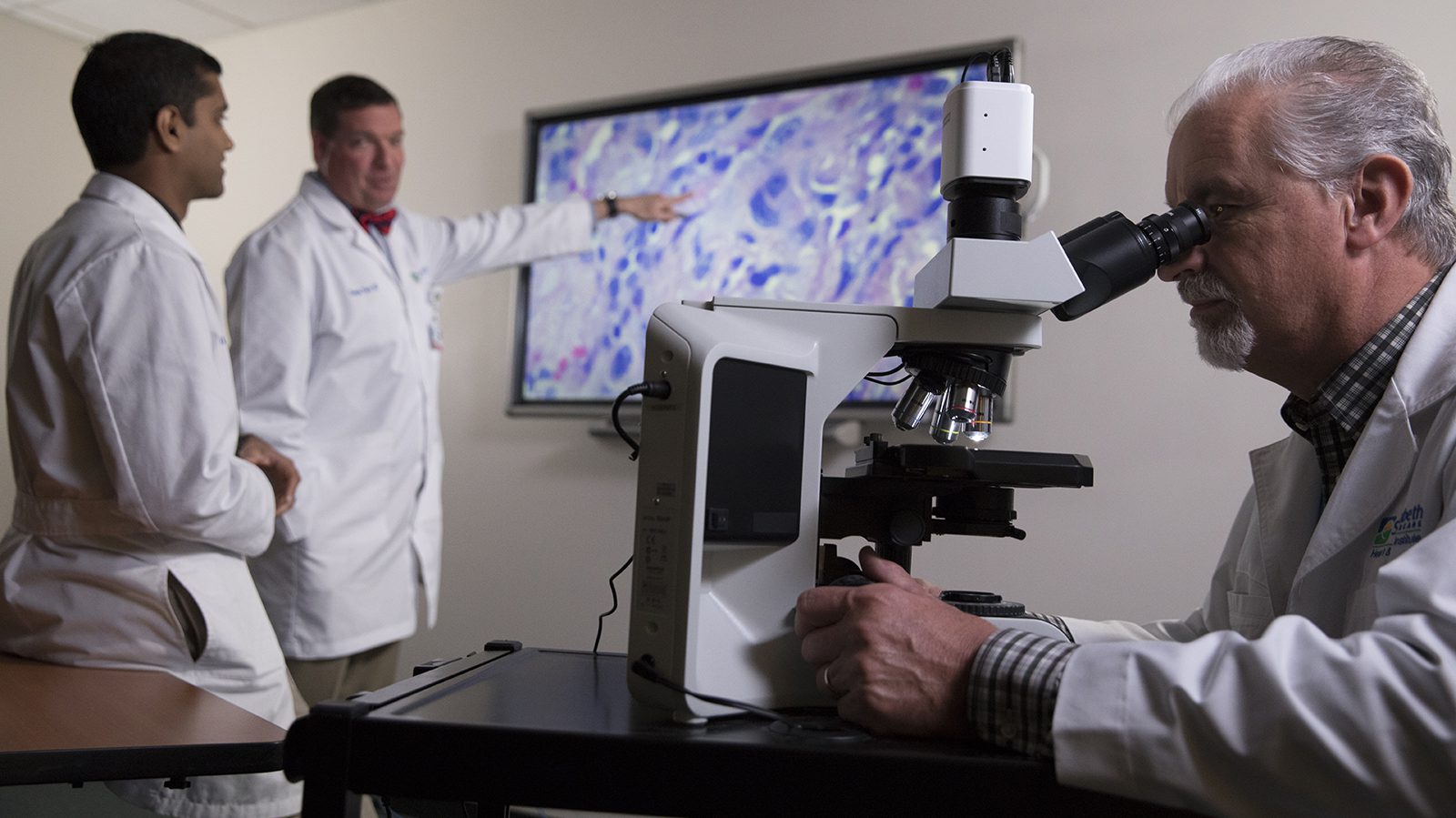Prostate Cancer
Prostate cancer starts in the prostate gland — a small, walnut-shaped gland that’s part of a man’s reproductive system. Your prostate gland produces semen. It’s located under your bladder at the base of your penis and around your urethra.
Prostate cancer usually grows slowly and remains confined to the prostate, however, some cases grow rapidly and spread to other areas of your body.
Risks Factors for Prostate Cancer
For unknown reasons, Black men are diagnosed with prostate cancer more often than other races. Other risk factors include:
- Being a male older than age 65.
- Family history of prostate cancer.
- Obesity.

Make an appointment
For more information, please contact your oncologist or the Cancer Care Center at (859) 301-4000.
Symptoms of Prostate Cancer
Prostate cancer may not cause any recognizable symptoms in its early stages. More advanced prostate cancer may cause several symptoms, including:
- Blood in your semen or urine.
- Bone pain.
- Decreased force in your urine stream.
- Difficulty urinating.
- Erectile dysfunction.
- Frequent need to urinate.
- Pain with ejaculation.
Diagnosing Prostate Cancer
Two tests are commonly used to diagnose prostate cancer, including:
If further tests are required, they may include:
- CT scan
- MRI scan
- PET scan
- Tissue biopsy
- Ultrasound
Assessing Prostate Cancer: Gleason Score
The Gleason Score refers to the grade or aggressiveness of the prostate cancer cells when a pathologist looks under the microscope. The Gleason score ranges from 6 or low-grade to 10 or high-grade. This is a method for predicting how fast cancer cells may grow.
Your Cancer Care Team
The team includes medical oncologists specializing in immunotherapy and precision medicine, surgical oncologists, radiation oncologists, interventional radiologists, thoracic surgeons, pain management specialists, genetic counselors, pathologists, nutritionists, pharmacists, nurses and support staff. They work together to create a treatment plan that’s just right for you.

U.S News & World Report High Performing for Cancer Care Procedures
St. Elizabeth Edgewood is ranked as the #1 Hospital in Kentucky by U.S. News & World Report in 2025, with Colon Cancer, Gynecological Cancer, Lung Cancer, and Prostate Cancer Surgeries procedures ranked as High Performing to reflect our commitment to clinical excellence.
Schedule Your Appointment Today
Call Your Primary Care Provider
Talk to your primary care physician about when you should have your cancer screenings. Call (800) 737-7900.


